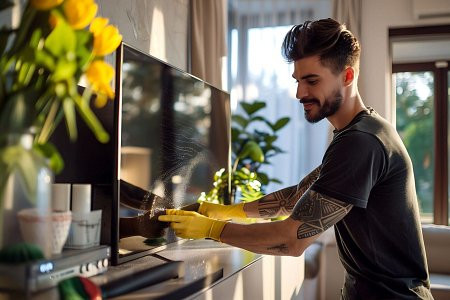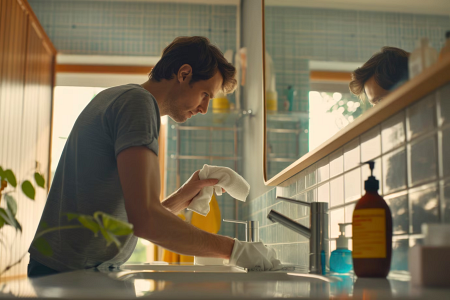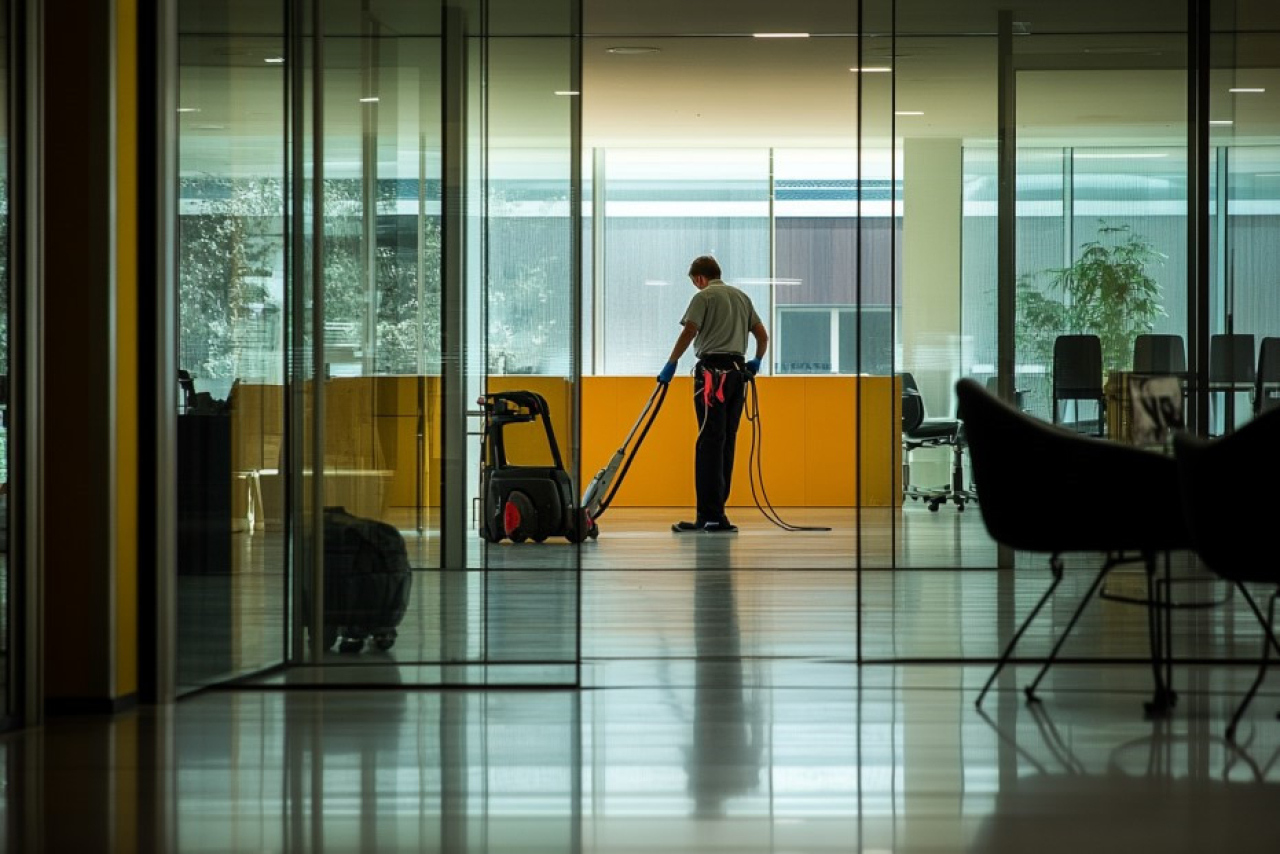To ensure guest satisfaction, protect your investment, and maximise rental income, a comprehensive maintenance strategy is indispensable. This guide will delve into the specific maintenance needs of short-term rentals, providing practical advice to help you keep your property in top condition.


Understanding the Unique Maintenance Needs of Short-Term Rentals
Short-term rentals present a unique set of maintenance challenges compared to traditional long-term tenancies. The high turnover of guests means your property is subjected to more wear and tear, requiring frequent cleaning, inspections, and potential repairs. Maintaining impeccable cleanliness and sanitation standards is paramount for ensuring guest well-being and adhering to local regulations.
Unexpected damages can occur, ranging from minor mishaps to more significant issues. It's essential to have a plan in place to address these promptly. Additionally, seasonal variations can impact your property's maintenance needs. For example, winterising your rental or preparing for peak tourist season may require specific attention.


Common Maintenance Issues in Short-Term Rentals
Plumbing problems are a frequent issue in short-term rentals. Leaky faucets, clogged drains, and toilet malfunctions can disrupt guests' stays. Electrical problems, such as faulty outlets or lighting fixtures, can also pose safety hazards. Maintaining a well-functioning HVAC system is crucial for guest comfort, especially during extreme weather conditions. Appliances, including refrigerators, dishwashers, and ovens, are prone to breakdowns due to heavy use.
Security is a top priority for guests. Ensuring that locks and security systems are in good working order is essential. Pest control is another common challenge, as properties can attract unwanted visitors. Regular inspections and preventative measures can help keep pests at bay.
DIY vs Professional Maintenance
Deciding whether to handle maintenance tasks yourself or hire professionals is a crucial decision for short-term rental owners. While some minor repairs and cleaning can be done independently, complex issues often require specialised skills. Factors such as the scope of the work, your available time, and your skillset should be considered.


Building a network of reliable maintenance professionals can save you time and money in the long run. Consider factors such as their expertise, responsiveness, and pricing when selecting service providers.
Creating a Maintenance Schedule
A well-structured maintenance schedule is essential for preventing problems and ensuring your property remains in top condition. Regular inspections allow you to identify potential issues before they escalate. Implementing a thorough post-guest cleaning checklist helps maintain cleanliness and sanitation standards. Deep cleaning should be scheduled periodically to address more intensive cleaning tasks. Seasonal maintenance, such as winterisation or preparing for peak season, should also be factored into your schedule.
Maintenance Budgeting
Effective financial planning is crucial for managing maintenance costs. Allocating a dedicated budget for maintenance expenses helps ensure that necessary repairs and upkeep are addressed promptly. Creating a maintenance reserve fund can provide a financial cushion for unexpected costs. Carefully evaluating the cost-benefit of maintenance versus potential revenue loss is essential for making informed decisions.
Technology and Maintenance
Technology can be a valuable asset in managing maintenance for short-term rentals. Maintenance management software can streamline the process by helping you track maintenance requests, schedule repairs, and communicate with service providers. Smart home devices can provide valuable insights into your property's condition, such as monitoring temperature, humidity, and energy consumption.
Leveraging online resources and tutorials can equip you with the knowledge and skills to handle minor maintenance tasks independently. Additionally, staying updated on industry best practices can help you make informed decisions about maintenance strategies.
Regular Cleaning Service Considerations
A clean and inviting space is very important for guest satisfaction in short-term rentals. While some owners choose to handle cleaning in-house, many opt for professional cleaning services. When selecting a cleaning service, consider factors such as experience in short-term rentals, adherence to sanitation standards, and availability to accommodate flexible schedules.
Professional cleaning service companies like Optima Cleaners, offers cleaning services tailored to the unique needs of short-term rental properties. With a focus on cleanliness and guest satisfaction, they can help ensure a positive experience for your guests.


Post-guest cleaning is particularly crucial. A comprehensive cleaning checklist should be developed and shared with the cleaning service. This checklist should include detailed instructions for cleaning all rooms, bathrooms, kitchen, and common areas. Particular attention should be paid to high-touch surfaces, linens, and laundry. Regular inspections after cleaning are essential to ensure quality standards are met.
A successful short-term rental business
Effective maintenance is the cornerstone of a successful short-term rental business. By understanding the unique challenges posed by high turnover rates and increased wear and tear, property owners can implement proactive strategies to protect their investment and enhance guest satisfaction. Striking a balance between DIY maintenance and professional services is essential.
A well-structured maintenance schedule, coupled with a dedicated budget, ensures that your property remains in optimal condition. Embracing technology can streamline maintenance processes and provide valuable insights into property management. By prioritizing maintenance, you not only safeguard your property but also cultivate a positive guest experience, leading to repeat bookings and glowing reviews.




 The recent remarks by Prime Minister Justin Trudeau about Heinz's exit from Canada have sparked a response from the ketchup
The recent remarks by Prime Minister Justin Trudeau about Heinz's exit from Canada have sparked a response from the ketchup There are a variety of reasons why someone may choose to travel to another country. It could be for business
There are a variety of reasons why someone may choose to travel to another country. It could be for business Service Canada has resumed mailing passports following the Canada Post strike that disrupted operations for over a month. Despite efforts
Service Canada has resumed mailing passports following the Canada Post strike that disrupted operations for over a month. Despite efforts

